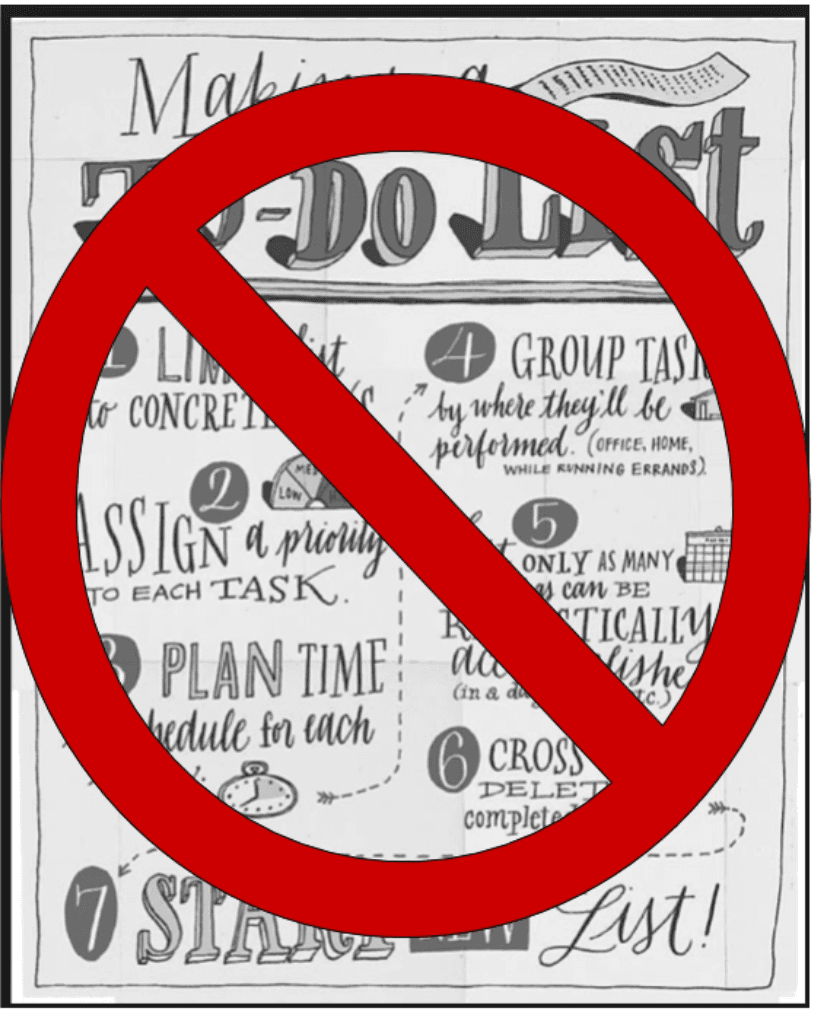To-do lists and calendars
Once you write down the tasks you need to perform, you then have to clear space in your day to put some of those tasks onto your calendar.
This calendar maintenance is itself a useful exercise for fighting the tide of interruptions you’re always facing. It pulls your brain out of a reactive mode and forces you to think about the long term.
599
858 reads
The idea is part of this collection:
Learn more about timemanagement with this collection
How to develop a growth mindset
How to think creatively and outside the box
How to embrace change
Related collections
Similar ideas to To-do lists and calendars
What is wrong with to-do lists
There is nothing wrong with getting tasks onto a piece of paper or app. The problem is running your life with a to-do list.
To-do lists:
- perpetuate harmful self-stereotypes
- lead to distraction
- destroy the fun in life
The...
Review cards
Limiting the space you have to write your notes on is a way of filtering through the massive amounts of information you must process.
It forces your brain to be selective and prioritize information.
Stop Making To-Do Lists Do This Instead
Problem
- To-do lists should be called painful wish lists. A series of tasks you hope to accomplish, without a specific plan.
Solutions
- Schedule a chunk of time for everything that is important to you; this is called “time...
Read & Learn
20x Faster
without
deepstash
with
deepstash
with
deepstash
Personalized microlearning
—
100+ Learning Journeys
—
Access to 200,000+ ideas
—
Access to the mobile app
—
Unlimited idea saving
—
—
Unlimited history
—
—
Unlimited listening to ideas
—
—
Downloading & offline access
—
—
Supercharge your mind with one idea per day
Enter your email and spend 1 minute every day to learn something new.
I agree to receive email updates

